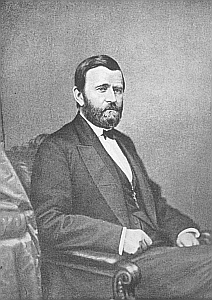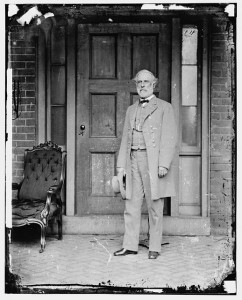April 9, 1865
Appomattox Court House, Virginia
On April 9, in the parlor of Wilmer McLean’s house at Appomattox Court House, Virginia, Confederate General Robert E. Lee surrendered the Army of Northern Virginia to Union General Ulysses S. Grant. The Confederacy was defeated, and the Union preserved.Wilmer McClean had moved to Appomattox Court House from Manassas, Virginia. During the battle of First Manassas (First Bull Run), McClean had an artillery shell come down his chimney and wind up in a stew cooking for Confederate General Beauregard. After this, McClean moved to Appomattox Court House in hopes of finding a more peaceful place to live. You could say that Wilmer McClean had the Civil War begin in the kitchen of his home at Manassas, and then end in the parlor of his home at Appomattox Court House.
With General Lee’s historic surrender at Appomattox Court House, not all activities and bloodshed of the Civil War immediately ended. War, and Confederate surrenders, continued on for a bit.
At New Orleans on May 26, Confederate General Simon Boliver Buckner’s army is the last Rebel army to surrender. On May 13, in Texas at a place called Palmito Ranch (also called Palmito Hill) near the Rio Grande, there is a skirmish between Confederate and Union troops. This skirmish is recognized as the last military action of the Civil War. It was a Confederate victory, but it was too little too late.

